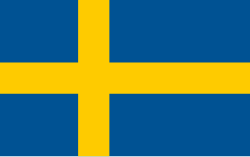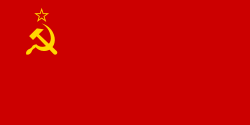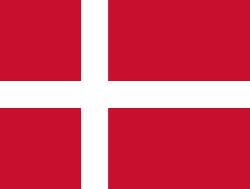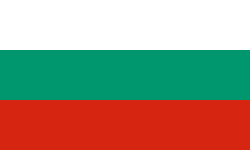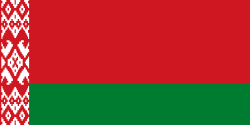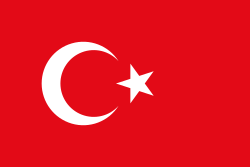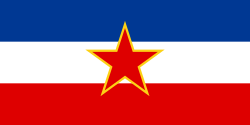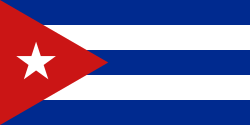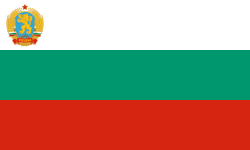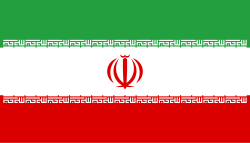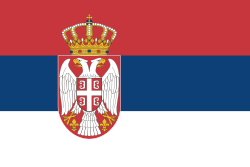Péter Farkas (zápasník)
| Péter Farkas | |
|---|---|
| Narození | 14. srpna 1968 (54 let) Budapešť |
| Povolání | zápasník |
| Některá data mohou pocházet z datové položky. Chybí svobodný obrázek. | |
| Přehled medailí | ||
|---|---|---|
| zlato | LOH 1992 | řecko-římský do 82 kg |
| Mistrovství světa v zápasu řecko-římském | ||
| zlato | MS 1990 | střední váha |
| zlato | MS 1991 | střední váha |
| Mistrovství Evropy v zápasu řecko-římském | ||
| zlato | ME 1991 | střední váha |
| stříbro | ME 1996 | střední váha |
Péter Farkas (* 14. srpna 1968 Budapešť, Maďarsko) je maďarský zápasník, bývalý reprezentant v zápase řecko-římském.
Dvakrát startoval na olympijských hrách. V roce 1992 na hrách v Barceloně vybojoval v kategorii do 82 kg zlatou medaili. V roce 1990 a 1991 vybojoval zlatou medaili na mistrovství světa. V roce 1991 vybojoval zlatou a v roce 1996 stříbrnou medaili na mistrovství Evropy.
V květnu 2004 byl zatčen, když na pozemcích jeho rodiny objevila policie plantáže marihuany. V říjnu 2008 byl odsouzen na 5 let za obchodování s drogami, podařilo se mu však oklamat stráže a ze soudní budovy uprchnout. 10. prosince 2009 byl odsouzen v nepřítomnosti k 7 letům vězení. 26. prosince byl zatčen v Andoře. V srpnu 2014 byl propuštěn na svobodu.
Externí odkazy
- Péter Farkas v databázi Olympedia (anglicky)
- Uprchlý olympijský vítěz Farkas dopaden
Média použitá na této stránce
Olympic Rings without "rims" (gaps between the rings), As used, eg. in the logos of the 2008 and 2016 Olympics. The colour scheme applied here was specified in 2023 guidelines.
(c) I, Cmapm, CC BY-SA 3.0
The flag of the Soviet Union (1955-1991) using a darker shade of red.
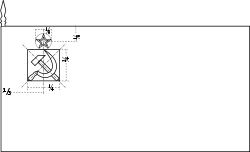
Flag of Romania, (21 August 1965 - 22 December 1989/officialy 27 December 1989).

Construction sheet of the Flag of Romania as depicted in Decree nr. 972 from 5 November 1968.
- l = 2/3 × L
- C = 1/3 × L
- S = 2/5 × l
Georgian flag in Pantone MS.
Flag of Romania, (21 August 1965 - 22 December 1989/officialy 27 December 1989).

Construction sheet of the Flag of Romania as depicted in Decree nr. 972 from 5 November 1968.
- l = 2/3 × L
- C = 1/3 × L
- S = 2/5 × l
Finská vlajka
Flag of the Socialist Federal Republic of Yugoslavia (1946-1992).
The design (blazon) is defined in Article 4 of the Constitution for the Republic of Yugoslavia (1946). [1]
Autor: Scroch, Licence: CC BY-SA 4.0
National Flag of the People's Republic of Bulgaria (1948-1968). Tha flag has got the coat-of-arms from 1948
Olympic Rings without "rims" (gaps between the rings), As used, eg. in the logos of the 2008 and 2016 Olympics. The colour scheme applied here was specified in 2023 guidelines.
Flag of Iran. The tricolor flag was introduced in 1906, but after the Islamic Revolution of 1979 the Arabic words 'Allahu akbar' ('God is great'), written in the Kufic script of the Qur'an and repeated 22 times, were added to the red and green strips where they border the white central strip and in the middle is the emblem of Iran (which is a stylized Persian alphabet of the Arabic word Allah ("God")).
The official ISIRI standard (translation at FotW) gives two slightly different methods of construction for the flag: a compass-and-straightedge construction used for File:Flag of Iran (official).svg, and a "simplified" construction sheet with rational numbers used for this file.
Flag of the unified Team of Germany for the Olympic Games, 1960–1968.
(c) I, Cmapm, CC BY-SA 3.0
The flag of the Soviet Union (1955-1991) using a darker shade of red.


